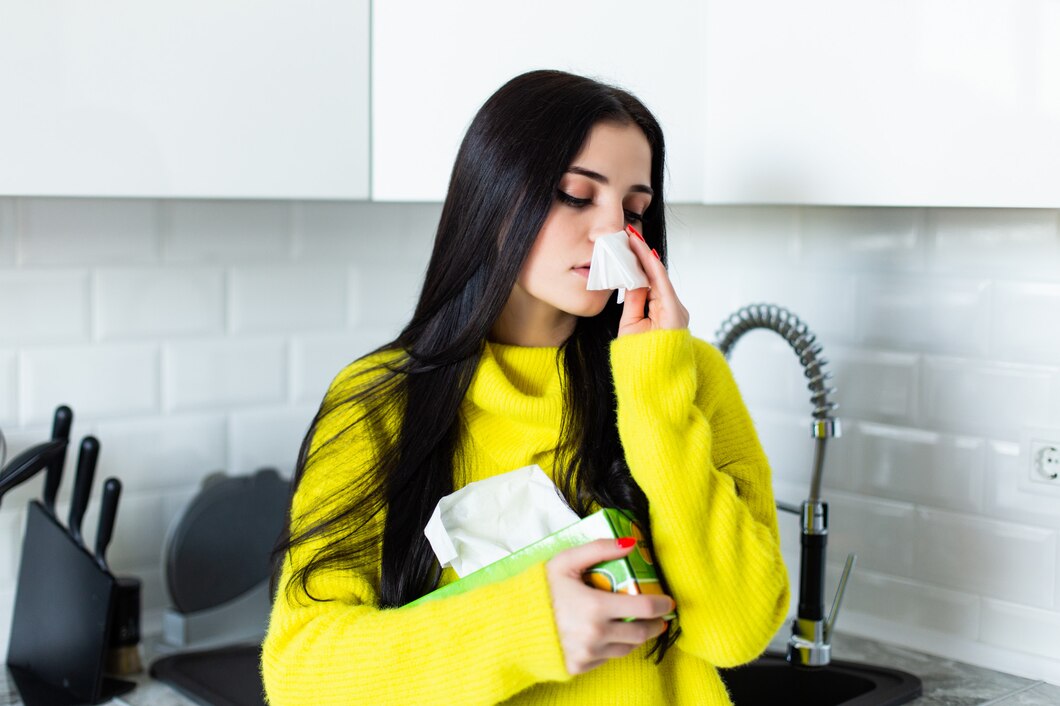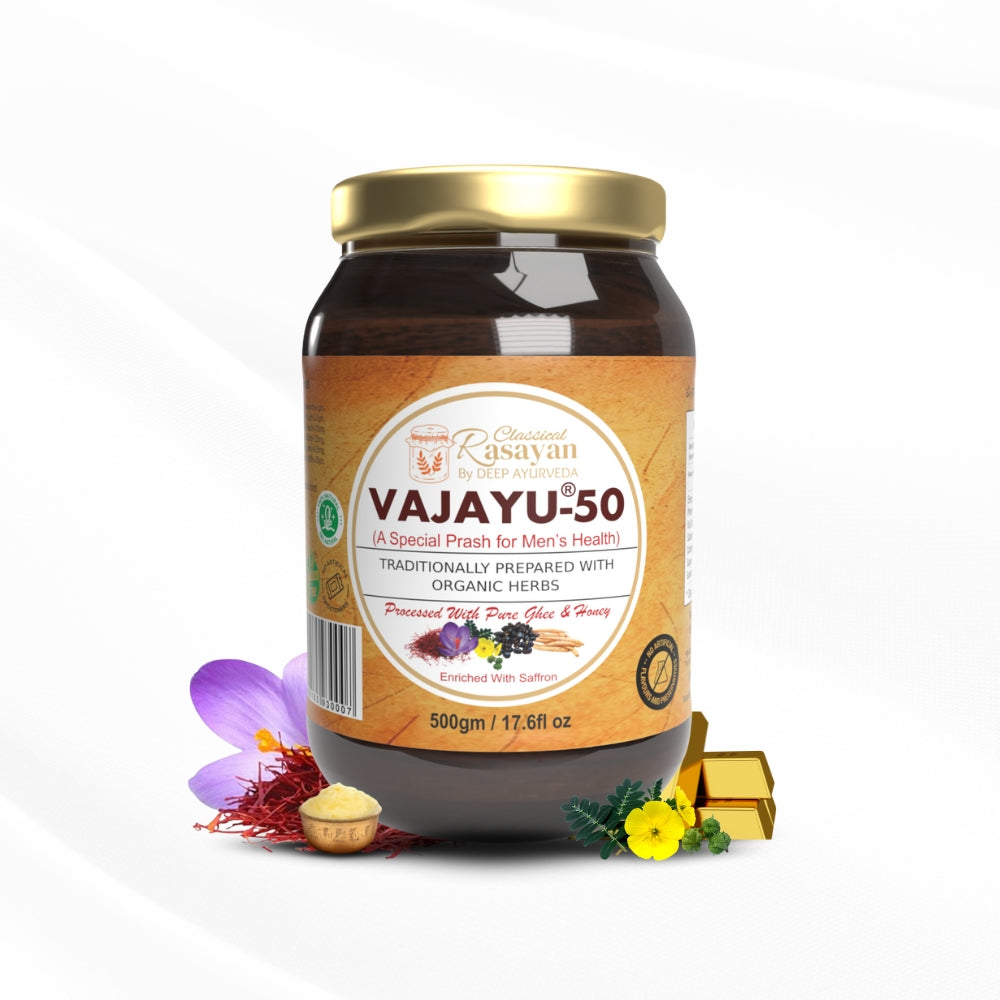Viral fever is one of the most common health conditions affecting people of all age groups. Unlike bacterial infections, viral fevers are caused by different strains of viruses that invade the body and weaken natural immunity. While modern medicine often manages viral fever with symptomatic treatment, Ayurveda provides a holistic approach to strengthen immunity, balance doshas, and promote long-term wellness.
In this blog, we will explore the symptoms, causes, and Ayurvedic treatments for viral fever in detail, along with practical lifestyle advice that helps in faster recovery.
What is Viral Fever?

Viral fever refers to a wide range of fever conditions caused by viral infections. These viruses can spread through direct contact, contaminated food or water, insect bites, or even changes in seasonal patterns.
In Ayurveda, fever is described as “Jwara”, which is considered one of the most important diseases because it not only affects the body but also the mind and spirit. The classical texts mention:
“Sarve rogaḥ jvarānugāḥ”
(Almost all diseases are associated with fever in some form).
This shows how fever indicates the imbalance of doshas—Vata, Pitta, and Kapha—and the disturbance of digestive fire (Agni).
Common Symptoms of Viral Fever

The signs of viral fever can vary depending on the strain of the virus and individual immunity. However, the most common symptoms include:
-
High temperature ranging from mild (99°F) to severe (104°F or above)
-
Body pain and muscle aches
-
Headache and fatigue
-
Chills and shivering
-
Sore throat and cough
-
Nasal congestion or runny nose
-
Loss of appetite
-
Nausea or vomiting in some cases
-
Weakness and lethargy
Ayurveda explains that in viral fever, there is an accumulation of toxins (Ama) in the body, which blocks the channels (Srotas). This causes imbalance in Agni (digestive fire) leading to symptoms like heaviness, loss of appetite, and tiredness.
Causes of Viral Fever

Viral fever can occur due to multiple reasons, including weakened immunity and environmental changes. The major causes are:
1. Viral Infections
Different viruses such as influenza virus, dengue virus, or enteroviruses can trigger fever.
2. Seasonal Variations
Sudden changes in weather, especially during monsoon or autumn, make the body vulnerable to viral infections.
3. Poor Immunity
A weak immune system fails to resist viral attacks, making one more prone to infections.
4. Lifestyle Factors
Irregular food habits, eating stale or contaminated food, excessive junk food, and lack of rest can disturb digestion and immunity.
5. Close Contact with Infected Individuals
Viral fevers often spread through droplets, saliva, or skin contact with someone already infected.
In Ayurvedic perspective, the root cause of fever is the imbalance of doshas and Ama (undigested toxins). These toxins mix with doshas, block microchannels, and disturb the functioning of Agni, resulting in rise of temperature and associated symptoms.
Ayurvedic View on Viral Fever

Ayurveda considers fever as a systemic disorder involving the entire body. According to Charaka Samhita:
“Jwaraḥ sharira-manaso ubhayakṛt”
(Fever affects both body and mind).
This indicates that viral fever not only creates physical discomfort but also mental weakness and restlessness.
-
Vata Jwara – Fever with dryness, body ache, anxiety, and shivering.
-
Pitta Jwara – Fever with high temperature, burning sensation, thirst, and irritability.
-
Kapha Jwara – Fever with heaviness, cough, congestion, and drowsiness.
Identifying the type of fever helps Ayurvedic physicians plan personalized treatment.
Ayurvedic Treatments for Viral Fever
Ayurveda focuses on eliminating toxins, pacifying aggravated doshas, and restoring the natural strength of Agni. The treatments are holistic, covering herbal formulations, diet, lifestyle, and therapies.
1. Herbal Remedies
-
Tulsi (Holy Basil)
Known as a natural antiviral, Tulsi leaves boost immunity and relieve respiratory symptoms. Consuming Tulsi tea helps in fever, cough, and cold.
-
Guduchi (Tinospora cordifolia)
Also called Amrita, Guduchi is a powerful immunity booster and antipyretic herb. It helps in reducing fever and detoxifying the body.
-
Sudarsana Churna
A classical Ayurvedic formulation mentioned for treating different types of fevers, especially viral fevers.
-
Ashwagandha
Strengthens immunity and reduces weakness associated with viral fever.
-
Shunthi (Dry Ginger)
Improves digestion, enhances Agni, and reduces Ama accumulation in the body.
2. Panchakarma Therapies
Panchakarma is recommended in chronic or recurring fever conditions to eliminate deep-rooted toxins.
-
Vamana (Therapeutic Emesis) – To remove excess Kapha.
-
Virechana (Purgation Therapy) – To balance aggravated Pitta.
-
Swedana (Herbal Steam Therapy) – Relieves stiffness, body ache, and improves circulation.
3. Ayurvedic Home Remedies
-
Drink warm water infused with ginger, black pepper, and Tulsi.
-
Use turmeric milk to fight infections and boost immunity.
-
Prepare coriander seed tea to reduce fever and improve digestion.
-
Inhale steam with eucalyptus oil for nasal congestion.
4. Dietary Guidelines (Pathya-Apathya)
-
Eat light, easily digestible food such as moong dal khichdi, vegetable soups, and herbal teas.
-
Avoid oily, fried, processed, and heavy foods.
-
Do not suppress natural urges such as sneezing or coughing, as it can aggravate fever.
-
Keep yourself hydrated with warm water or herbal infusions.
5. Lifestyle Advice
-
Take adequate rest to allow the body to recover.
-
Maintain personal hygiene to prevent the spread of infection.
-
Practice Pranayama and meditation to reduce stress and enhance immunity.
-
Avoid exposure to cold winds or sudden temperature changes.
Modern vs. Ayurvedic Approach
-
Modern Medicine treats viral fever symptomatically with antipyretics and analgesics, which reduce fever but do not necessarily strengthen immunity.
- Ayurveda treats fever at the root by detoxifying the body, balancing doshas, and improving the immune response. This reduces recurrence and promotes long-term health.
When to Consult a Doctor?
While mild viral fever can be managed with home care and Ayurvedic remedies, one should immediately consult a physician if:
-
Fever persists for more than 4–5 days
-
Temperature rises above 103–104°F
-
Severe dehydration, confusion, or seizures occur
-
There are rashes, breathlessness, or chest pain
Conclusion
Viral fever is a common health issue, but with the right approach, it can be managed effectively. Ayurveda views fever as more than just a rise in body temperature; it is a sign of deeper imbalance in body energies. Through herbal remedies, Panchakarma therapies, lifestyle adjustments, and dietary discipline, Ayurveda not only provides relief from symptoms but also strengthens the body against future infections.
If you are seeking natural, holistic, and side-effect-free solutions for viral fever, consulting an experienced Ayurvedic practitioner can help you find the right treatment tailored to your constitution (Prakriti).







